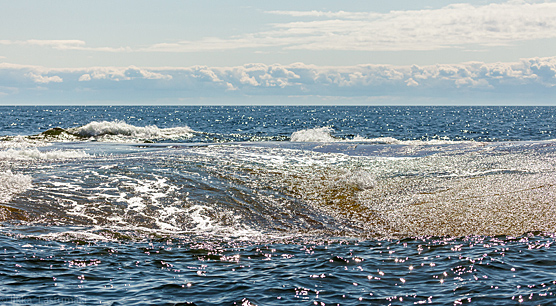Press release 2018-08-16 at 14:07

© Picture: Ilkka Lastumäki / itameri.kuvat.fi
Cyanobacteria are mixed into the water in the southern and south-western sea areas, and wide cyanobacterial blooms have not been observed anymore in the Finnish sea areas. Dinoflagellates may color water to reddish or brownish in the southern and south-western Finnish sea areas. In lakes, cyanobacteria are not present in most of the observation sites, but there are still some abundant cyanobacterial blooms in the southern Finland. More in Finnish
Large map of the week's 33 algal situation
Nutrient load into the Baltic Sea continues to be too high, and global warming also increases the risk of blue-green algae blooms (Press release, July 18, 2018)
Blue-green algae in water are a risk for people and animals (Press release, July 29, 2018)
More information
(Telephone 1.00-3.00 pm)
Lakes
Head of Unit Marko Järvinen, Finnish Environment Institute SYKE
Tel. 0295 251 241, firstname.lastname@ymparisto.fi
Sea areas
Cyanobacterial bloom situation
Researcher Sirpa Lehtinen, Finnish Environment Institute SYKE
Tel. 0295 251 353, firstname.lastname@ymparisto.fi
Dinoflagellates in Baltic Sea
Senior Researcher Sanna Suikkanen, Finnish Environment Institute SYKE
Tel. 0295 251 660, firstname.lastname@ymparisto.fi
State of the Baltic Sea
Senior Research Scientist Jouni Lehtoranta, Finnish Environment Institute SYKE (till August 17)
Tel. 0295 251 363, firstname.lastname@ymparisto.fi
Senior Researcher Antti Räike, Finnish Environment Institute SYKE (from August 20)
Tel. 0295 251 586, firstname.lastname@ymparisto.fi
Communications
Communication Specialist Hannele Ahponen, Finnish Environment Institute SYKE
Tel +358 50 327 5997, firstname.x.lastname@ymparisto.fi